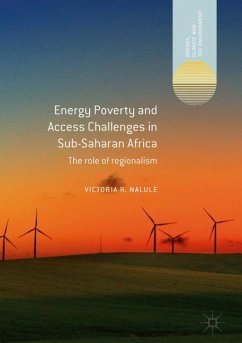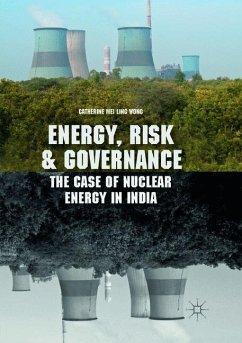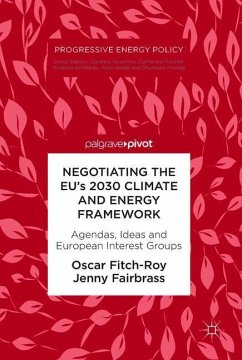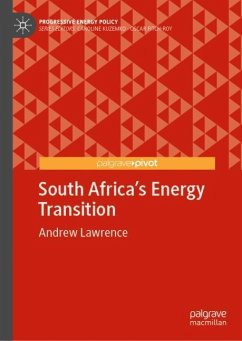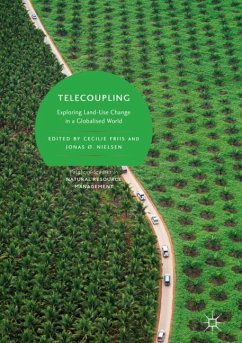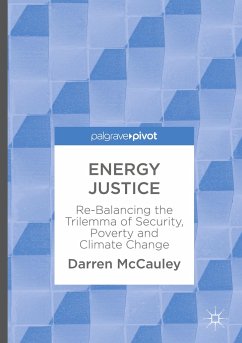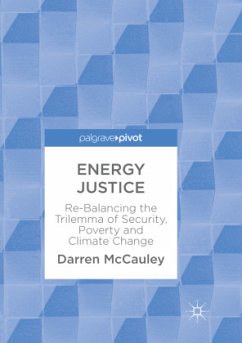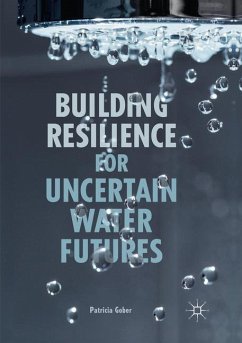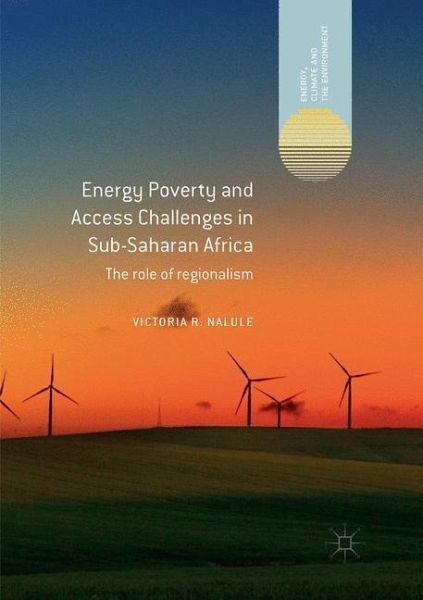
Energy Poverty and Access Challenges in Sub-Saharan Africa
The role of regionalism
Versandkostenfrei!
Versandfertig in 6-10 Tagen
65,99 €
inkl. MwSt.
Weitere Ausgaben:

PAYBACK Punkte
33 °P sammeln!
Access to modern energy is central in addressing the major global challenges of the 21st century, including poverty, climate change and famine. However large parts of the world, especially in Sub-Saharan Africa (SSA) have poor or no access to modern energy. Victoria Nalule argues that SSA countries have many common energy challenges which could be tackled with collective efforts through regional cooperation. By means of a legal and comparative analysis and a seven-step framework, the book explores the current regional mechanisms employed in Africa to address the challenge of energy poverty and...
Access to modern energy is central in addressing the major global challenges of the 21st century, including poverty, climate change and famine. However large parts of the world, especially in Sub-Saharan Africa (SSA) have poor or no access to modern energy. Victoria Nalule argues that SSA countries have many common energy challenges which could be tackled with collective efforts through regional cooperation. By means of a legal and comparative analysis and a seven-step framework, the book explores the current regional mechanisms employed in Africa to address the challenge of energy poverty and access and whether they are effective in tackling the challenge of energy access, including regional energy infrastructure and regional energy regulations.
Chapters discuss the evolution of regionalism in SSA and the role of regional cooperation in the development of renewable energy as a means of confronting both energy access and climate change. Specifically the nexus between energy access, renewable energy and climate change is covered as well as the potential of fossil fuels in addressing energy poverty. The establishment and development of regional energy infrastructure as one of the mechanisms of addressing energy access challenges in SSA and regional efforts to harmonise energy regulation are explored. Finally a concluding chapter provides recommendations for policy makers and other relevant stakeholders on how best to implement some of the suggestions made in previous chapters. International organisations, regional organisations, government officials, scholars and students with interest in the energy sector will highly benefit from this book.
Chapters discuss the evolution of regionalism in SSA and the role of regional cooperation in the development of renewable energy as a means of confronting both energy access and climate change. Specifically the nexus between energy access, renewable energy and climate change is covered as well as the potential of fossil fuels in addressing energy poverty. The establishment and development of regional energy infrastructure as one of the mechanisms of addressing energy access challenges in SSA and regional efforts to harmonise energy regulation are explored. Finally a concluding chapter provides recommendations for policy makers and other relevant stakeholders on how best to implement some of the suggestions made in previous chapters. International organisations, regional organisations, government officials, scholars and students with interest in the energy sector will highly benefit from this book.





